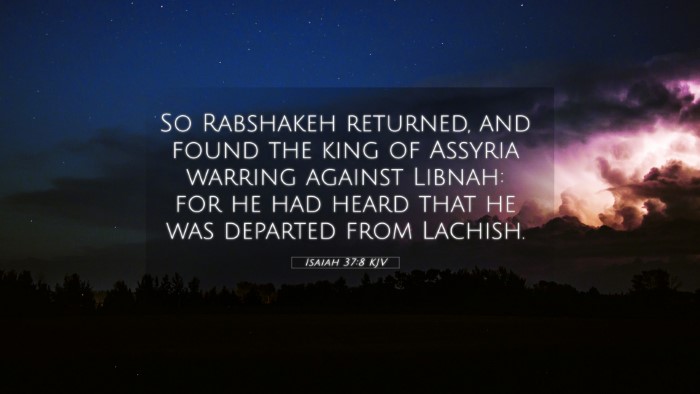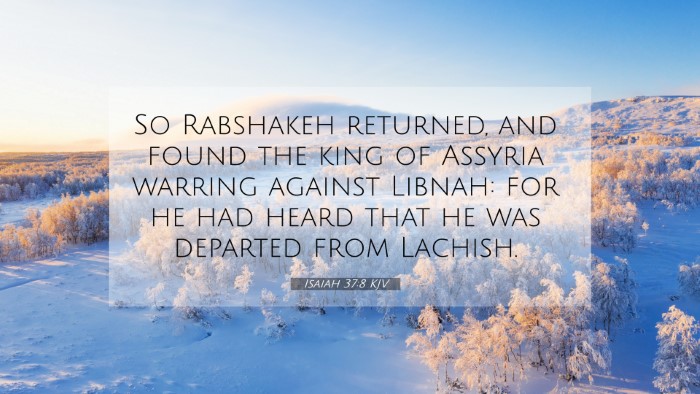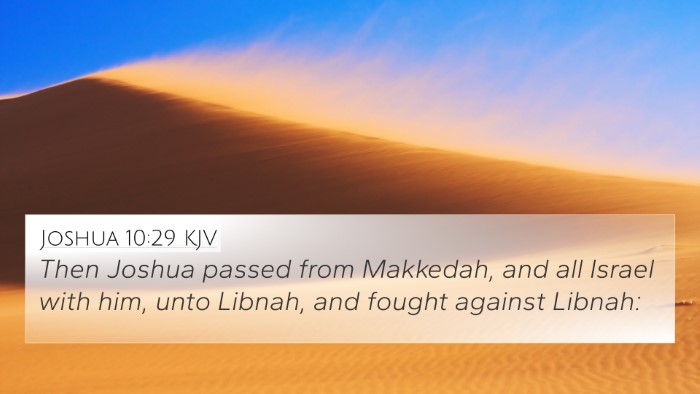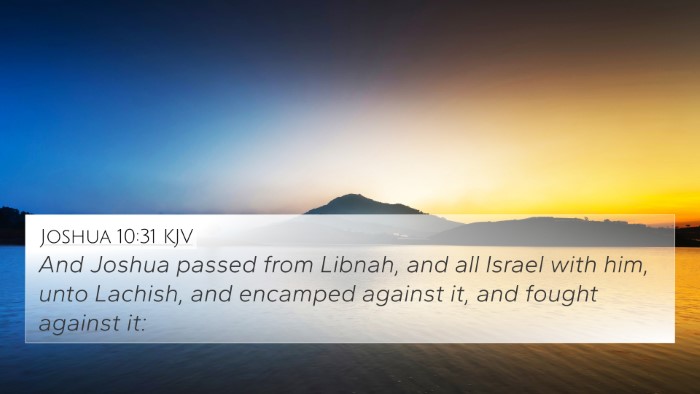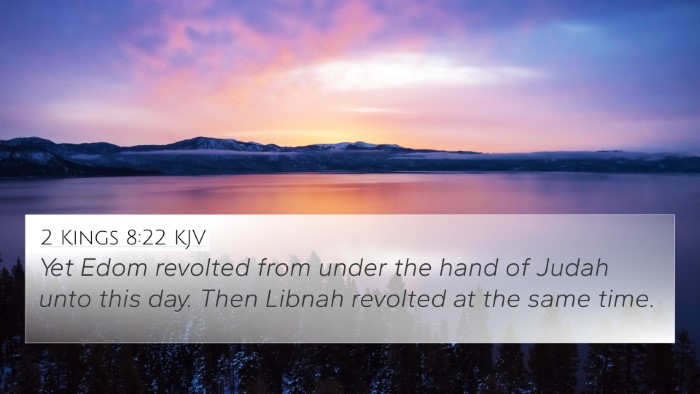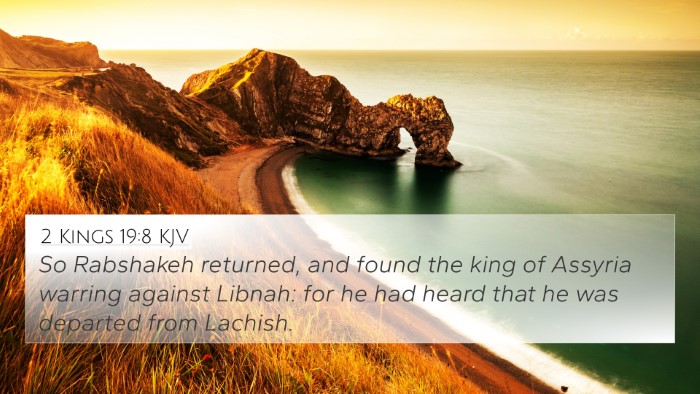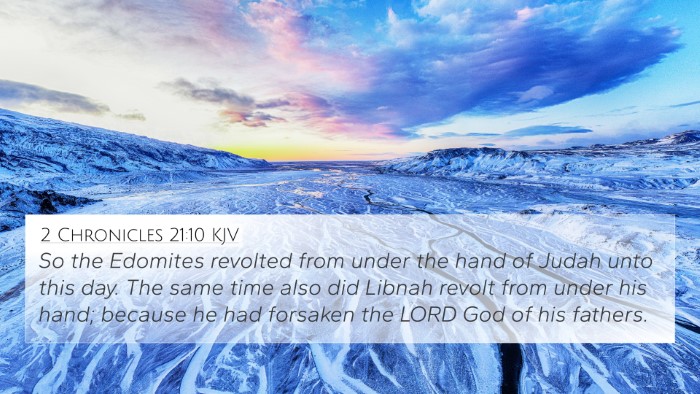Understanding Isaiah 37:8
Isaiah 37:8 states: “So Rabshakeh returned, and found the king of Assyria warring against Libnah: for he had heard that he was departed from Lachish.” This verse presents a pivotal moment in the historical context of Israel, focusing on the Assyrian siege and interactions with the leaders of the time.
Summary of Context
This verse occurs during the reign of King Hezekiah of Judah when Sennacherib, king of Assyria, threatened Jerusalem. Rabshakeh, a high-ranking Assyrian official, is on a mission to intimidate the people of Judah and persuade them to surrender. His return signifies changes in the military situation faced by the Assyrians.
Historical Significance
The context shows a shifting battlefield, which is emblematic of divine intervention and the uncertainties of human conflict. The movement from Lachish to Libnah is crucial; it reflects the Assyrians' strategic maneuvers, which serve to heighten the tension in this narrative.
Commentary Insights
Matthew Henry’s Commentary
Matthew Henry emphasizes the sovereignty of God during this conflict. He remarks on how Rabshakeh's mission illustrates not only the pride of the Assyrians but also the impending assurance of God's protection over His people.
Adam Clarke’s Commentary
Adam Clarke adds that Rabshakeh's return indicates a decisive moment where intimidation tactics of Assyria were not as effective as they presumed. Clarke notes the importance of faith in such crises, with the underlying message that God seldom abandons those who trust in Him.
Albert Barnes’ Commentary
Albert Barnes provides insight into Assyrian military strategy, noting the tactical reasons for Rabshakeh’s movements. He suggests that Rabshakeh’s actions also reflect a larger spiritual warfare, fitting into the theme of God's deliverance amidst apparent defeat.
Thematic Connections
Isaiah 37:8 connects to broader themes within the Bible regarding faith, divine intervention, and the assurance of victory over evil. The following scripture references relate closely to this verse:
- Isaiah 36:4-5: Rabshakeh challenges Hezekiah’s faith.
- Isaiah 37:10: A direct threat to Hezekiah's faith in the Lord.
- 2 Kings 19:8: Rabshakeh’s report emphasizing the looming danger.
- Isaiah 31:1: The futility of relying on human strength.
- Psalm 46:1-2: God as refuge in times of trouble.
- Jeremiah 17:5: The contrast between trusting man versus trusting God.
- Romans 8:31: “If God is for us, who can be against us?”
Cross-Referencing for Deeper Understanding
When engaging in Bible cross-referencing for a more profound understanding of Isaiah 37:8, the following tools and methods can be valuable:
- Bible Concordance: Use a concordance to explore key terms, enhancing your understanding of related verses.
- Cross-Reference Bible Study: Implement systematic approaches to find connections between this and related verses.
- Identifying Connections: Look for themes that bind Old Testament texts with New Testament revelations.
- Comparative Analysis: Conduct a comparative study to see how this verse aligns with others across different books.
- Thematic Bible Study: Perform studies based on themes such as deliverance, faith, or divine justice.
- Scriptural Chain References: Trace thematic links through scriptural cross-references for comprehensive insights.
Application of Insights
Understanding Isaiah 37:8 within its narrative framework allows for richer spiritual insights. Believers are encouraged to draw parallels with their experiences, recognizing that God's sovereignty often guides historical and personal events. As seen in this scripture, tumultuous periods can lead to divine deliverance when anchored in faith.

